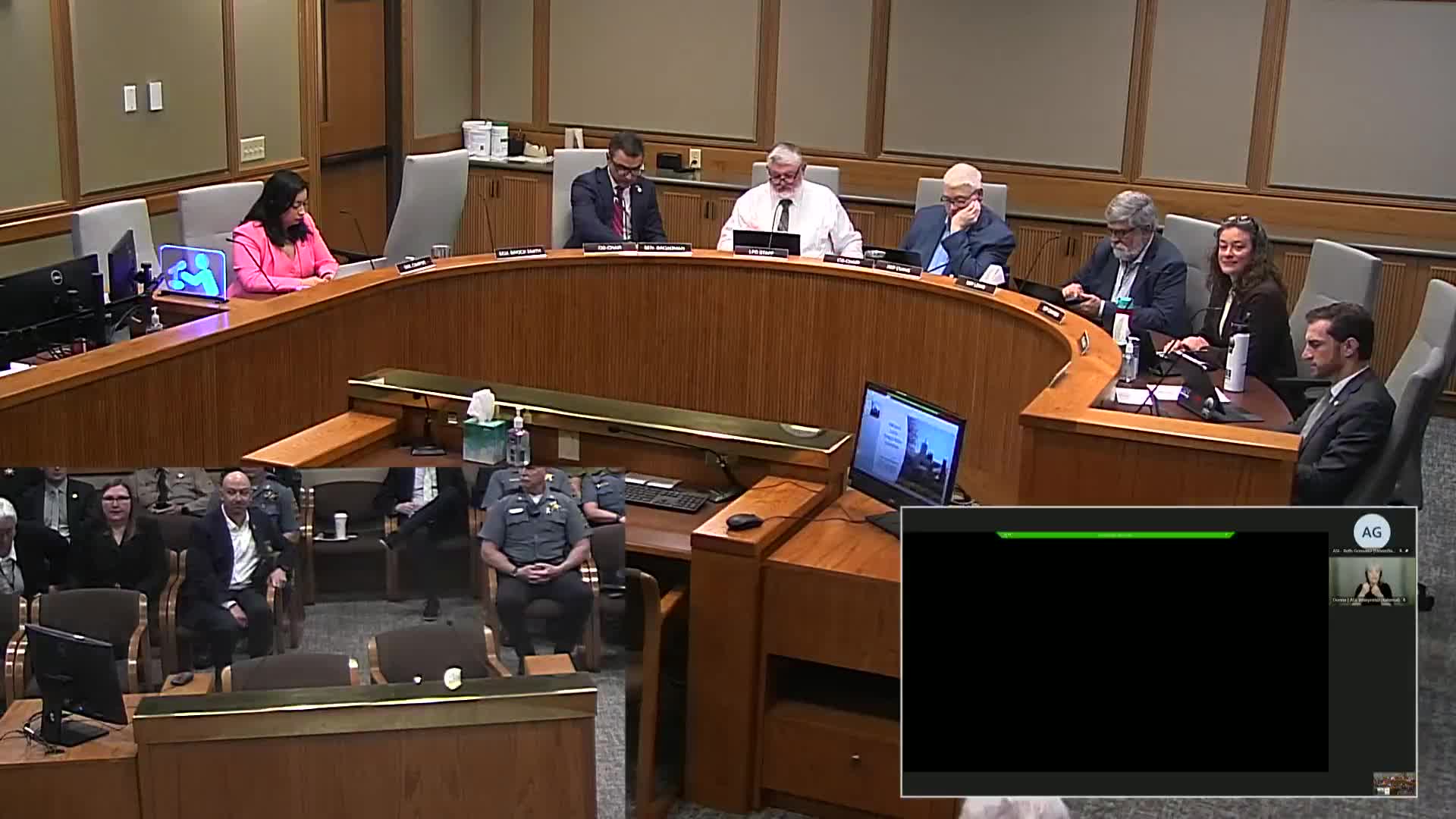Committee hears overview of DPSST fee ratification in House Bill 5,033; no public testimony
Get AI-powered insights, summaries, and transcripts
Subscribe
Summary
House Bill 5,033 would ratify fees for DPSST’s private security providers, entities and private investigators. DPSST staff said fee increases already went into effect by administrative rule and that the agency expects future adjustments might be needed.
Co-chairs opened a public hearing on House Bill 5,033 April 23, a fee-ratification bill for the Department of Public Safety Standards and Training’s private security and private investigator programs, and the department provided an overview and answered committee questions. No public testimony was offered during the hearing; the committee left the record open for 48 hours for written comments.
Mr. Robbins provided an overview for the committee, explaining that statute requires the legislative assembly to authorize agency fee increases adopted between sessions; otherwise the fees must be rescinded at adjournment of the next regular session. He said DPSST’s private security provider, private security entity and private investigator programs are funded by fee revenue and do not receive other agency fund sources.
Jennifer Howald, DPSST legislative coordinator, told the committee DPSST implemented fee changes by administrative rule on Feb. 1, 2025, after the Department of Administrative Services interim approval process. Howald said the driver for the provider fee increases included pay-equity salary increases in 2024 and increased legal expenses for DOJ services. She said personal services comprise more than 90% of administrative program costs for the certifications and licenses.
Howald explained specific program drivers: the new private security entity license (effective Jan. 1, 2024) now has fewer applicants than originally projected—about 500 actual applicants versus the 1,000 estimated when the fee was set—leading to a need to raise the fee. She said the private investigator license fee had not changed since Feb. 2006 and that operational and administrative cost increases prompted the update.
Committee members asked about specific instructor course fees; Howald explained that some instructor fees combine course and licensing costs and that the agency separates charges for certain firearm instructor courses to balance total cost. DPSST requested two technical amendments to the bill language: a wording correction to the reinstatement fee language for emergency suspensions and removal of a subsection that is no longer applicable after rule changes.
The co-chairs closed the public portion of the hearing, with the committee again leaving the written record open for 48 hours. No votes or committee actions were taken during the April 23 session.
